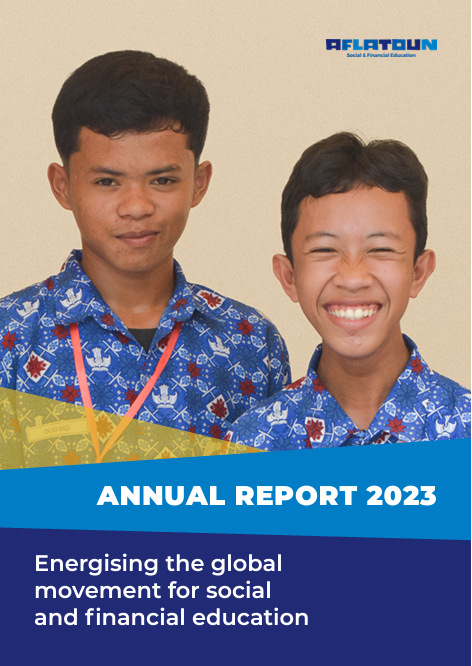For 15 years, Network for Education Children and Youth (NECY) has been promoting and advocating for the involvement of civil society organisations, at the community and national level, in formulating and implementing children and youth rights, quality education for all, and ensuring equal opportunities for everyone in Sri Lanka. What makes NECY unique is its hard work to ensure rights and quality education to all children and youth, hence fighting against social discrimination.
The organisation focuses primarily on filling the existing gap in social and financial literacy and awareness of rights and responsibilities among children and youth. Moreover, they work on the strategic and management failures in the preschool education system and find solutions to the lack of qualified preschool teachers.
To achieve these goals, NECY carries out a variety of projects and activities. These include camps, awareness campaigns, the formation of Clubs at the school level, training teachers on social and financial education, empowering preschool teachers on professional rights and responsibilities, and sharing their experiences at a local and international level. In addition, they conduct capacity building programmes for civil society groups, government institutions, preschool teachers, and networks at all levels to empower youth and professionals who lack essential competencies and skills to work with children.
As a result of their projects, NECY has accomplished some objectives, such as introducing the concept of saving among preschool and school children and youth and creating student clubs democratically exercising the rights and responsibilities – for example, conducting elections to select office bearers.

Our Partnership
NECY and Aflatoun have been partners since 2013 when the Sri Lankan organisation started implementing our programmes. Since then, NECY has been rolling out the Aflatot, Aflatoun and Aflateen curricula. They decided to partner with us because they believe that Aflatoun International is the best-reputed organisation creating high-quality Social and Financial Education (SFE) curricula for different age groups, which can be contextualised to meet Sri Lankan SDGs.
In addition, what attracted them in the first place was the availability of training for teachers and different supplements, and the use of active learning methodology. In fact, active learning methodology draws the learner’s interest irrespective of their age. At the same time, it is easily adaptable within the local context and culture.
Moreover, NECY sees in the Aflatoun programmes an opportunity to discuss current and important issues with children and youth, such as girls empowerment, peace-building and disabled learners’ rights.
The organisation shared that SFE was unknown to many citizens even though they were wealthy and educated, and unemployment is a crucial issue in Sri Lankan society. However, they believe, that teachers or community leaders training programmes on Social and Financial Education empowered children, youth, adults and ultimately the country itself by inspiring youth to become successful entrepreneurs.
“Pandemic is an opportunity for the Optimists”: the stories of Mathisha, Dhammika and Kavindya
NECY shared three stories of optimism that stem from the times of the Covid-19 pandemic.
Mathisha Ranathunga is a 16-year-old girl who studies at 13Years Guaranteed Education Vocational Stream class of Swarnamali Girls College Kandy, Sri Lanka. She is the eldest daughter of her family. Unfortunately, the Covid 19 pandemic hit them very badly. The country was under lockdown, her father couldn’t go to work, and she faced many difficulties with continuing her studies online. She learned about saving and investing in micro-enterprises in the school as she is an active member of the Aflatoun Club of Swarnamali Girls College. She joined many fundraising activities, field visits, and the club held weekly meetings via zoom and communicated through the Whatsapp group. As part of their learning activities, the Club members learnt about social enterprising and entrepreneurship skills. They watched a series of video clips on starting a potted plants nursery, and this became Mathisha’s hobby. So she took Rs.1000 as a loan from her elder brother; she bought some pots and started planting indoor plants. She used throw-away cans and coconut husk as pots and produced compost with her garden’s waste and leaves.
When the plants grew, she sold them in front of her house, and within a few weeks, her potted plants became famous in her community. Now she has a good income, around Rs. 20,000 per month. She wants to improve her potted plants’ sale. Therefore, she joined the regional Vocational Training Authority to study landscaping seriously, and she wants to be wealthy one day and help her parents in the future.
Dhammika is a 13-year-old boy from Chandananda Buddhist College who was also inspired by watching a video about gardening and decided to start a vegetable plot, producing compost with the waste and leaves from his garden. While Dhammika’s mother and father were at work, he looked after these vegetable beds. It helped him get rid of the anxiety and boredom of being alone at home for long hours. Now he and his family are happy to have fresh vegetables from their garden and zero costs on vegetables. Moreover, he shares these vegetables with the villagers in need.

Kavindya is a 14-year-old boy who studies at Danthure Central College. His family had many financial difficulties due to the pandemic and he felt helpless. He is the treasurer of his school’s Aflatoun Club and never missed any meetings. He wanted to buy a mobile phone since he couldn’t join online classes when his father was away from home. So, he started home gardening soon after watching the video series like Mathisha & Dhammika. By doing so, he also succeeded in helping his family members, and finally, he found a way to support his family. He wants to continue this gardening project forever since it’s a joy to take care of plants during his free time.











